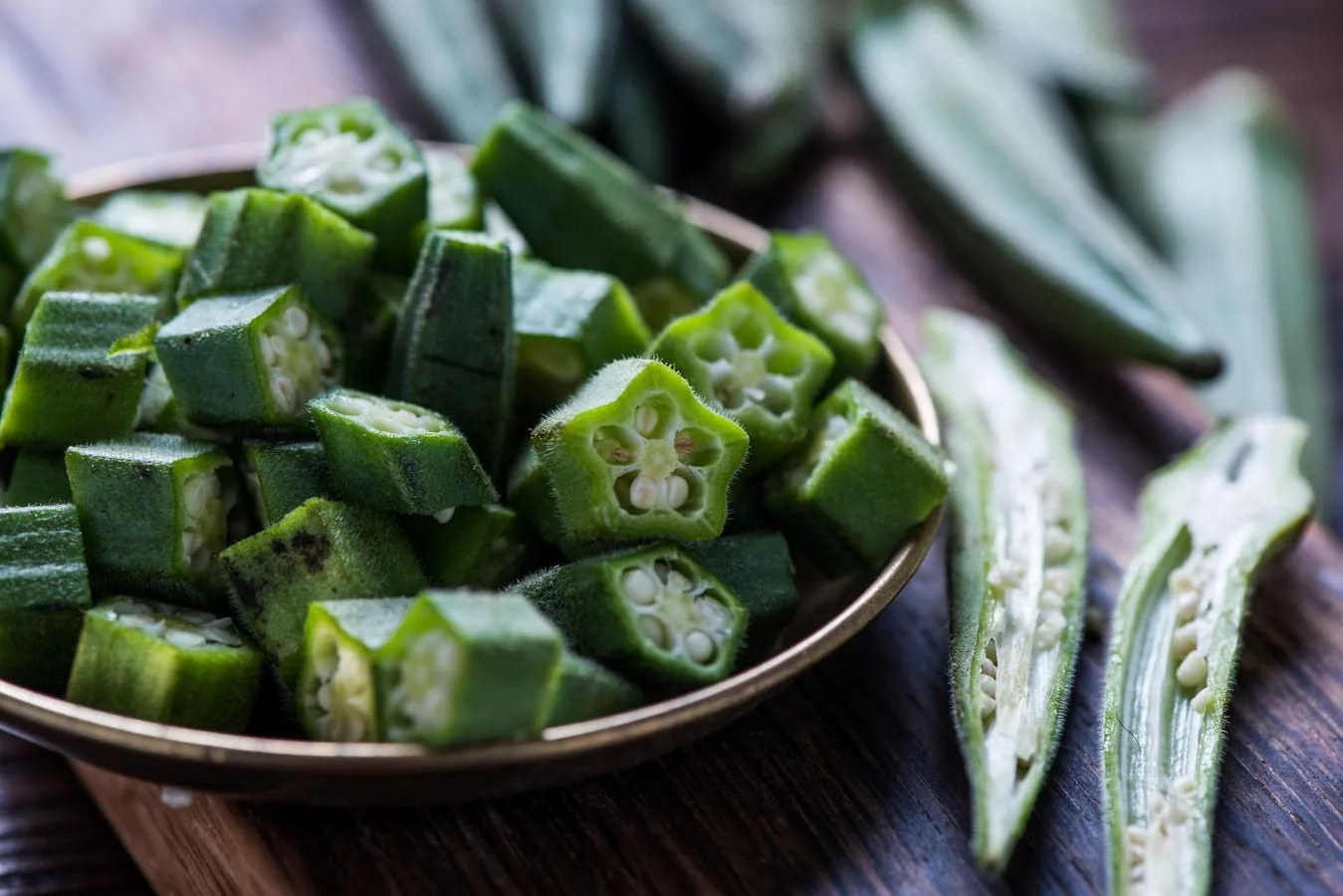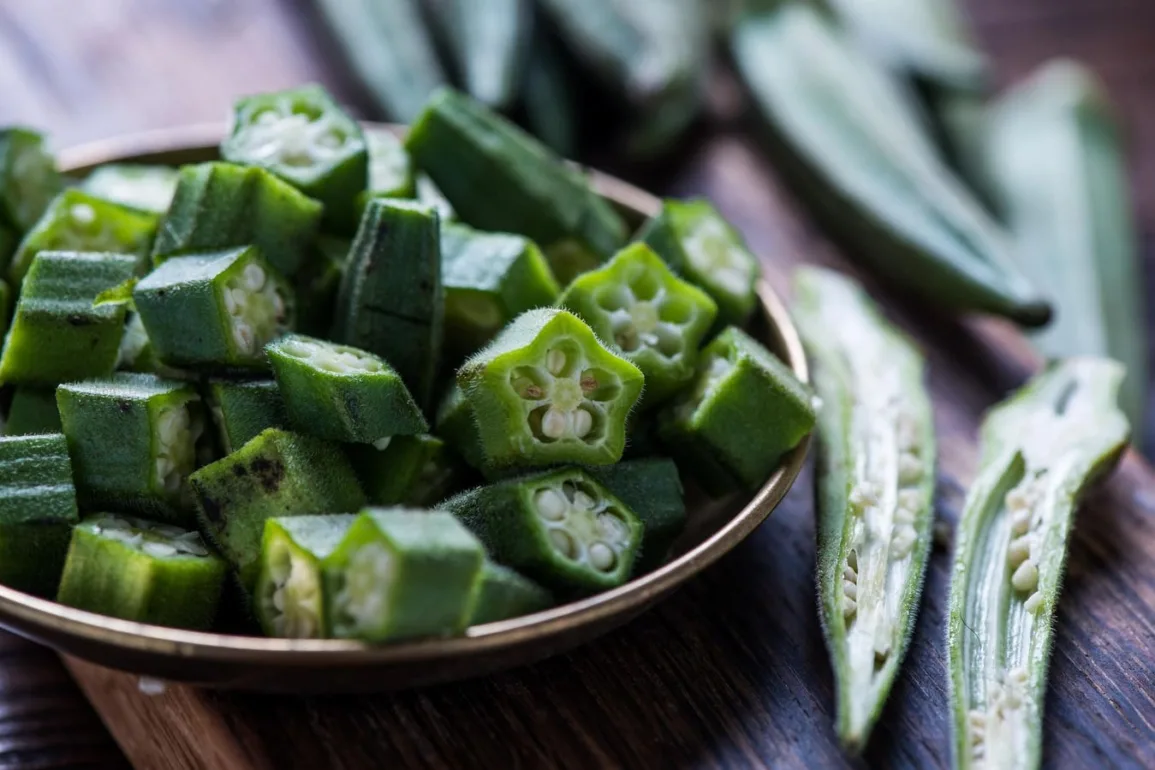
It can be used in stews and gumbos. It can be fried and roasted and even served as the stuffing for your favorite fish — even at Thanksgiving.
Okra, an edible green seed pod of West African origin, is a staple of the American diet and base ingredient for many dishes that make up Black foodways. It is believed to have arrived to the Americas through African women who wove it into their braided hair before they were brought into the trans-Atlantic slave trade.
EatOkra, an app named for this food staple, connects 500,000 foodies to chefs, culinary creators and restaurants. Anthony and Janique Edwards, the creators of EatOkra, have set out to develop a Black-owned food ecosystem.
“EatOrka is disrupting how people are finding and being able to support Black-owned restaurants,” Anthony Edwards said.
EatOkra vows to honor culinary heritage and history for the African diaspora; cultivate a community … [+]
Anthony and Janique developed EatOkra in 2016. The app launched on iPhone and Android in 2017. Unlike other food purchasing and delivery apps that filter for various types of cuisine, EatOrka places Black food and its creators at its center.
“Our main business is to celebrate black-owned businesses,” Anthony said. “And not just restaurants, we also work to uplift chefs, catering companies, meal prep businesses, influencers and storytellers.”
As state legislatures throughout the United States work to ban Black historical content in public schools and limit the teaching of African-American studies, Anthony and Janique are finding new ways and tools to amplify Black people’s foundational impact on American society and culture.
With more than 9,500 listings of services, restaurants, chefs, catering companies, and food suppliers, EatOrka has earned $2.5 million in cumulative revenue and exceeded more than half a million app downloads. This garnered EatOkra the Apple Story Developer Award in 2021.
In a $65 billion food delivery market, EatOrka has provided more than 1.5 billion impressions for businesses that utilize the platform. Black food historian Tonya Hopkins said this feat is centuries in the making.
“It is essential that we realize that Black food entrepreneurism is older than America,” Hopkins said. “We were among the first food entrepreneurs in America, and the EatOrka app puts that at your fingertips, bringing the Black food story back to centerstage.”
Hopkins, known as “The Food Griot” on social media, co-founded the James Hemings Society, an organization named after Thomas Jefferson’s enslaved chef who became the first American to train as a chef in France.
Her work as a culinary history consultant sheds light on the timeless Black culinary talents that have shaped fine dining in the Americas. She believes that EatOrka’s unique ability to connect new diners to Black foodways in their local neighborhoods enhances this mission.
“It is no newsflash to tell folks how much Black food has been attempted to be erased from the American narrative,” Hopkins exclaimed. “To connect the dots and center our story, it will require both an accurate telling of history and uplifting modern-day Black food creators throughout the country, things that live at the center of the EatOrka experience.”
Tonya Hopkins, a.k.a. “The Food Griot” is a Culinary Chronicler & Provider of Nonfiction Food & … [+]
Amid an increasing demand for Black-owned restaurants, EatOkra’s digital marketplace allows consumers and food creators to meet and establish new communities based on food.
“We unlock access to a network of untapped restaurants and users, making it easy for consumers to discover and share Black-owned food experiences and for Black restaurateurs to thrive and scale,” the EatOrka website states.
With pitfalls in the restaurant business, such as lack of access to customer data, food delivery aggregators failing to verify Black ownership and high commission fees, EatOrka has carved out a space for Black food owners and Black foodways to exist and be discovered.
“Having a dedicated Black food platform that is for us, by us resonates deeply with the Black founders on our app,” Edwards said.
“If you’re not giving up a ton of money and commissions or paying a ton in marketing, you’re not getting the exposure,” he added. “Our app decreases those costs and increases exposure to foodies looking for Black food.”
EatOrka utilizes its community-powered ethos to recruit and retain customers, all as part of what Anthony and Janique call a collaborative effort. Miriam Milord, founder of BCakeNY, a business featured on EatOkra, echoed those sentiments.
“EatOrka is that app that we all need, consumers as well as small businesses,” Milord said in a statement. “It is so easy to use, and the resources are endless. Many people have found our business through the app, and we, in turn, were able to explore new Black-owned restaurants with ease.”
With local Black restaurants often being the first to hire and employ a diverse set of community members, application users are also attracted to EatOkra’s innate ability to invest in local communities. Anthony Edwards is currently working to expand EatOkra’s functionality so that it better enhances the economy for Black entrepreneurs.
“As we work on rolling our order feature, we are laser-focused on allowing individuals to order food on the platform at a better and more favorable rate for restaurants and users,” Anthony said.
Other elements of EatOkra’s expansion plan include allowing the purchase of tickets for events or virtual parties, and virtual cooking classes. Anthony also expressed his hope that EatOkra becomes an e-commerce marketplace and destination for updates and news on Black food.
Like many Black-owned food businesses on their platform, EatOrka’s early success has not alleviated the roadblocks facing Black entrepreneurs in the 21st century.
“As successful as we are. We’re having a tremendously tough time raising money,” Anthony said.
Hopkins said this phenomenon has deep ties to the U.S.’ racialized and discriminatory history.
“Through enslavement and freedpeople, Black Americans are at the foundation of American ways, fine dining and our nation’s food industry,” Hopkins said. “Not legally allowed to be customers for centuries, our place in the food industry is often marred with lack of access to capital and roadblocks that seeped deeply in this nation’s discriminatory roots.”
Given that challenge, EatOrka has still found ways to give back to the larger Black food community. In 2022, the platform awarded a $10,000 grant to Jannette Sellars, the owner of Wadada Healthy Market & Juice Bar.
Since receiving the grant, Wadada and Sellars have witnessed tremendous growth, Edwards said.
In a clear connection to the original enslaved women that brought Orka to the new world, in the haul of slave ships, Anthony Edwards and the founders of EatOrka are using their technical know-how and learned financial experience to create a stronger starting position for Black-owned food businesses.
“Okra was a feat brought over during the slave trade, and we cooked it in our stews and soups to survive,” Anthony said. “And today, the EatOkra platform is that story of survival.”


